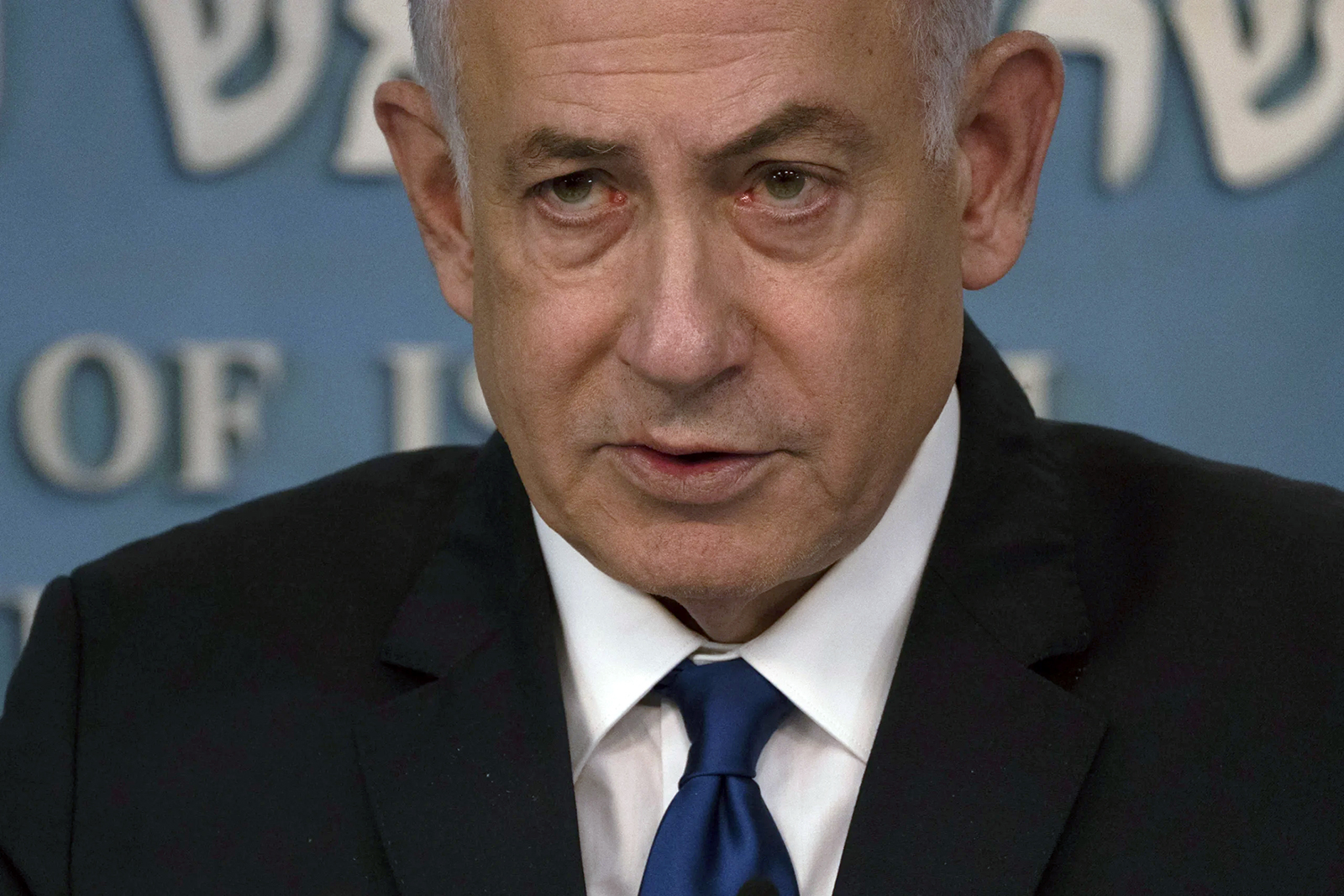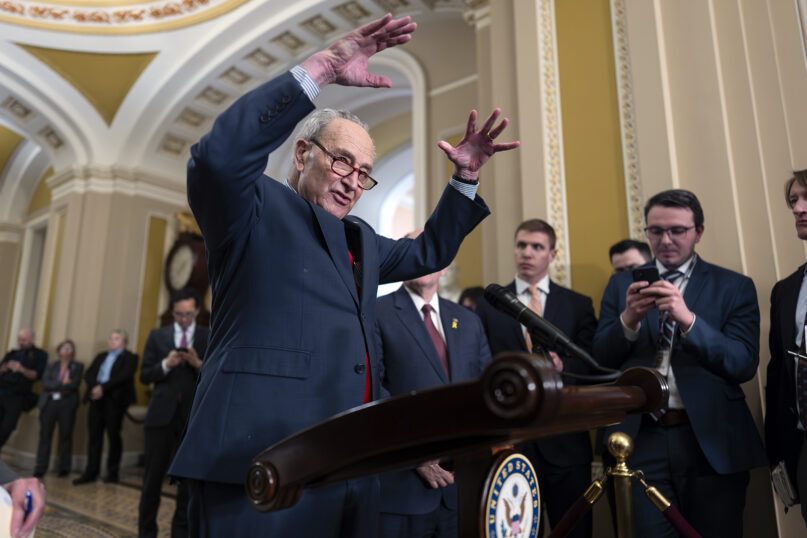(RNS) — An umbrella group of major U.S. Jewish organizations issued a statement Tuesday (March 19) saying it had “deep reservations” about Sen. Chuck Schumer’s speech on the Senate floor last week in which he branded Prime Minister Benjamin Netanyahu of Israel a major impediment to peace in the Middle East and called for elections to replace him when the war winds down.
The group, the Conference of Presidents of Major American Jewish Organizations, representing 50 of the largest U.S. American organizations, said in its statement that it was “distressed” that Schumer, the Senate majority leader, would suggest to Israel how it should conduct its electoral process, adding, “We believe that at a time when Israel is fighting an existential war, on the embers of the 1200 innocents massacred on October 7th, it is not a time for public criticisms that serve only to empower the detractors of Israel, and which foster greater divisiveness, when unity is so desperately needed.”
The Conference of Presidents met for a 45-minute conference call with Schumer earlier this week to discuss his speech. Afterward, CEO William Daroff and board chair Harriet P. Schleifer issued the statement.
Within hours, several of the council’s member groups took to social media to say the statement does not represent them. On Wednesday, the Union for Reform Judaism, the largest U.S. Jewish denomination, and seven other Jewish organizations put out a rebuttal, saying the Conference of Presidents’ words were “divisive and unfair.”
“Their statement does not reflect the views of several member entities who support much of the important content of Sen. Schumer’s speech, or even those who disagreed with some of what he said but understood that this speech was a constructive critique made by one of the U.S. Congress’ most passionate champions of a strong and safe Israel,” the URJ’s statement said.
In addition to the URJ, those taking issue with the Conference of Presidents included the National Council for Jewish Women, the Jewish Council for Public Affairs, the Central Conference of America’s Rabbis, and Americans for Peace Now. Separately, a group of 1,700 former Israeli air force pilots backed Schumer’s call for new Israeli elections.

Israeli Prime Minister Benjamin Netanyahu speaks in Jerusalem, Sunday, March 17, 2024. (AP Photo/Leo Correa, Pool)
Schumer’s speech was historic. No previous Senate Majority leader, much less one who is Jewish, has been as vocal about dissatisfaction with Israel’s political and military direction. The five-month war in Gaza, which has killed more than 30,000 people according to Gaza health officials and left hundreds of thousands without food or shelter, has sharply divided the American Jewish community.
While there are no recent polls of U.S. Jews’ public opinion of the war, American public opinion is increasingly wary of Israel’s catastrophic military operation in Gaza, which the U.S. is backing by providing Israel with funds and weaponry. Last month, the Senate approved an emergency national security aid bill that would send an additional $14.1 billion to Israel, most of it for weapons for the war against Hamas.
Half of U.S. adults say Israel’s retaliation for the Hamas attacks on Oct. 7 have gone too far, according to an AP-NORC poll last month. And according to a new Grinnell College poll, Americans are divided about Netanyahu’s leadership: 34% of Americans view Netanyahu unfavorably, 36% of Americans do not know enough to say, and 31% view him favorably. The partisan divide is dramatic, with 53% of Republicans having favorable views of Netanyahu compared to 57% of Democrats having unfavorable views.
While American Jews overall may support the war, they are hardly united in their views.
Rabbi Jill Jacobs, who leads T’ruah: The Rabbinic Call for Human Rights, which does not belong to the Conference of Presidents, said the group’s track record of unflinching support for Israel is becoming dangerous.
“They essentially say that love and care for Israel requires supporting this ongoing war and requires supporting ongoing occupation and requires supporting the very undemocratic extremist government that’s currently in power,” Jacobs said. “Those of us who care about Israel and care about the future have to make clear that that love should contribute to fighting for two states, to fighting for democracy and to working to end the war.”
Daniel Sokatch, the CEO of the New Israel Fund, which raises money to fund Israeli civil society organizations committed to liberal democracy, said the Conference of Presidents is clinging to a notion of a united front when it comes to Israel. That front, he said, “disappeared long ago.”
He cited Israel’s ongoing occupation and settlement building, its unwillingness to consider a two-state solution, its devastating siege of Gaza and its embattled prime minister, which have given American Jews plenty of openings to criticize Israel.
“The hypocrisy of these claims that we have no right to comment on any of this are ludicrous, and I think it’s good that many members of the conference have now clarified that they in no way, shape or form agree with the official release,” Sokatch said. “I’m just not sure about the utility of an institution that continues on like that.”





